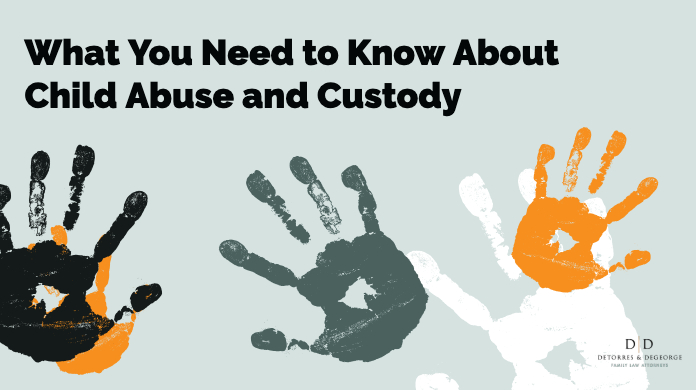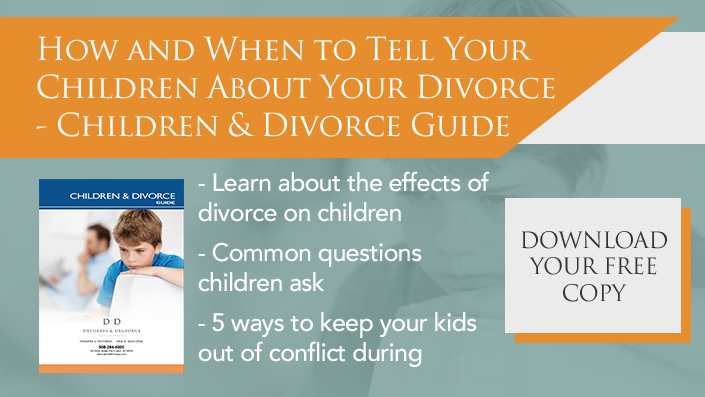 The sexual-abuse allegations against Woody Allen by his daughter Dylan Farrow made national news last year and have turned the spotlight on child abuse and custody. Dylan alleges Allen sexually abused her as a child back in 1992, when she was 7. Allen denies it and states that Dylan’s mother, Mia Farrow, manipulated her to make up the allegations.
The sexual-abuse allegations against Woody Allen by his daughter Dylan Farrow made national news last year and have turned the spotlight on child abuse and custody. Dylan alleges Allen sexually abused her as a child back in 1992, when she was 7. Allen denies it and states that Dylan’s mother, Mia Farrow, manipulated her to make up the allegations.
A study by the Association of Family and Conciliation Courts found that abuse allegations occur in less than 2% of all divorce cases—putting to rest the idea that this is a common ploy used in custody cases. In the cases in which child abuse was alleged, 48% of the time the accusations were brought by mothers against fathers and 19% of the time by mothers against stepfathers. Fathers accused mothers 6% of the time and accused stepfathers 16% of the time.
Woody Allen alleges that the accusations in this case were false and were intentionally brought by Mia Farrow to influence their custody case. According to the same Family and Conciliation Courts study, intentionally false reports are made in about 5% to 8% of all child abuse and custody cases.
The American Prosecutor’s Research Institute has created a list of signs that a report of abuse may be intentionally false. These include:
- A parent who is more focused on being vindictive toward the parent than on the harm that has been done to the child.
- The parent is unwilling to consider other explanations or reasons for the child’s behavior, statements, and symptoms.
- The parent is unwilling to allow the child to be interviewed without being present and prompts the child with what to say when asked about the alleged abuse.
- A parent who wants the child to testify in the child abuse and custody case and shows no concern about how testifying might impact the child.
- If the abuse is unfounded or unproven, the parent looks for other professionals who might find a different outcome or result.
How to recognize child abuse
If you suspect child abuse in your family, this matter needs to be taken very seriously. As a parent, your primary concern is to make sure your child is protected and safe. If your child spends time with the other parent or friends or relatives of the other parent, you may have some concerns about how your child is cared for when he or she is away from your home. It is important to understand that most children are safe and cared for while with another parent and that child abuse is the exception and not the rule.
That being said, as a parent you should always be aware of the warning signs of child abuse so that you will recognize it should it ever happen to your child. If you suspect child abuse and your child needs immediate medical help, call 911 or go to a hospital. Call 1-877 NJ ABUSE (1-877-652-2873) to report child abuse. It is also important that you talk with your attorney so that you can obtain custody of your child as soon as possible. Here are signs that will help you recognize child abuse:
- Your child withdraws from normal activities and avoids spending time with friends.
- You notice changes in your child’s behavior at home or school, including anger, hyperactivity, hostility, or changes in school performance.
- Your child is depressed, very anxious, or suddenly has less self-confidence.
- Your child is reluctant to leave you, to leave school, or to leave other safe zones when she is going to the potential abuser’s home.
- Your child is suddenly rebellious or defiant in ways that are unusual for him.
- Your child displays age-inappropriate sexual knowledge or behavior, or he or she describes sexual abuse.
- There is blood in your child’s underwear or signs that walking or sitting are painful.
- Unexplained ailments such as headaches or stomach aches are described by your child.
- Sudden surges of affection or clinginess emerge.
- There are frequent unexplained injuries to your child such as bruises or cuts.
- Delayed emotional development is an issue.
If abuse or neglect is a factor in your divorce or custody case, call DeTorres & DeGeorge today for professional advice and representation you can trust. DeTorres & DeGeorge cares about your child and is here to help you with your child abuse and custody case. Call us at 908-304-9683 to discuss your case.


 START LIVE CHAT
START LIVE CHAT










